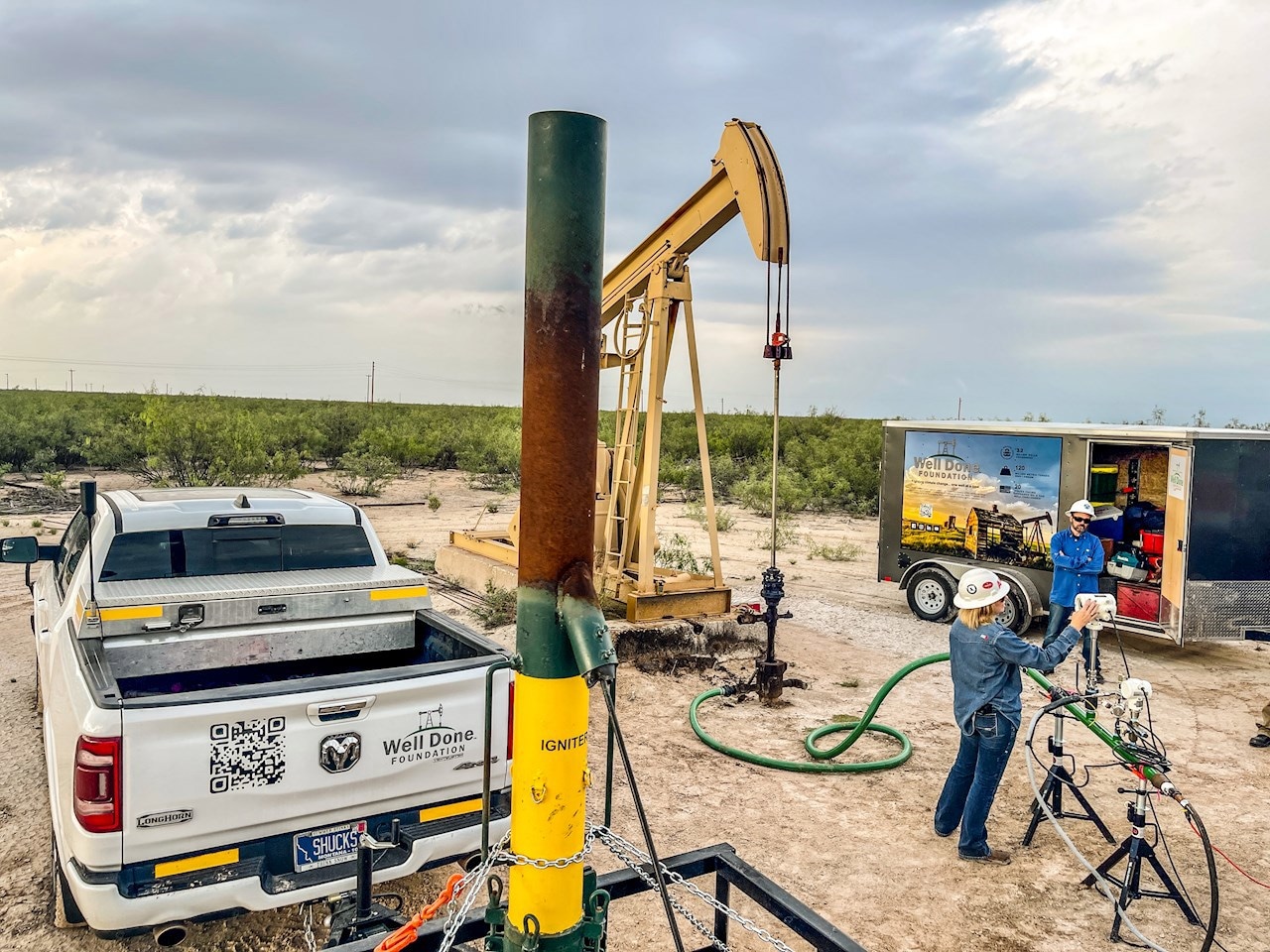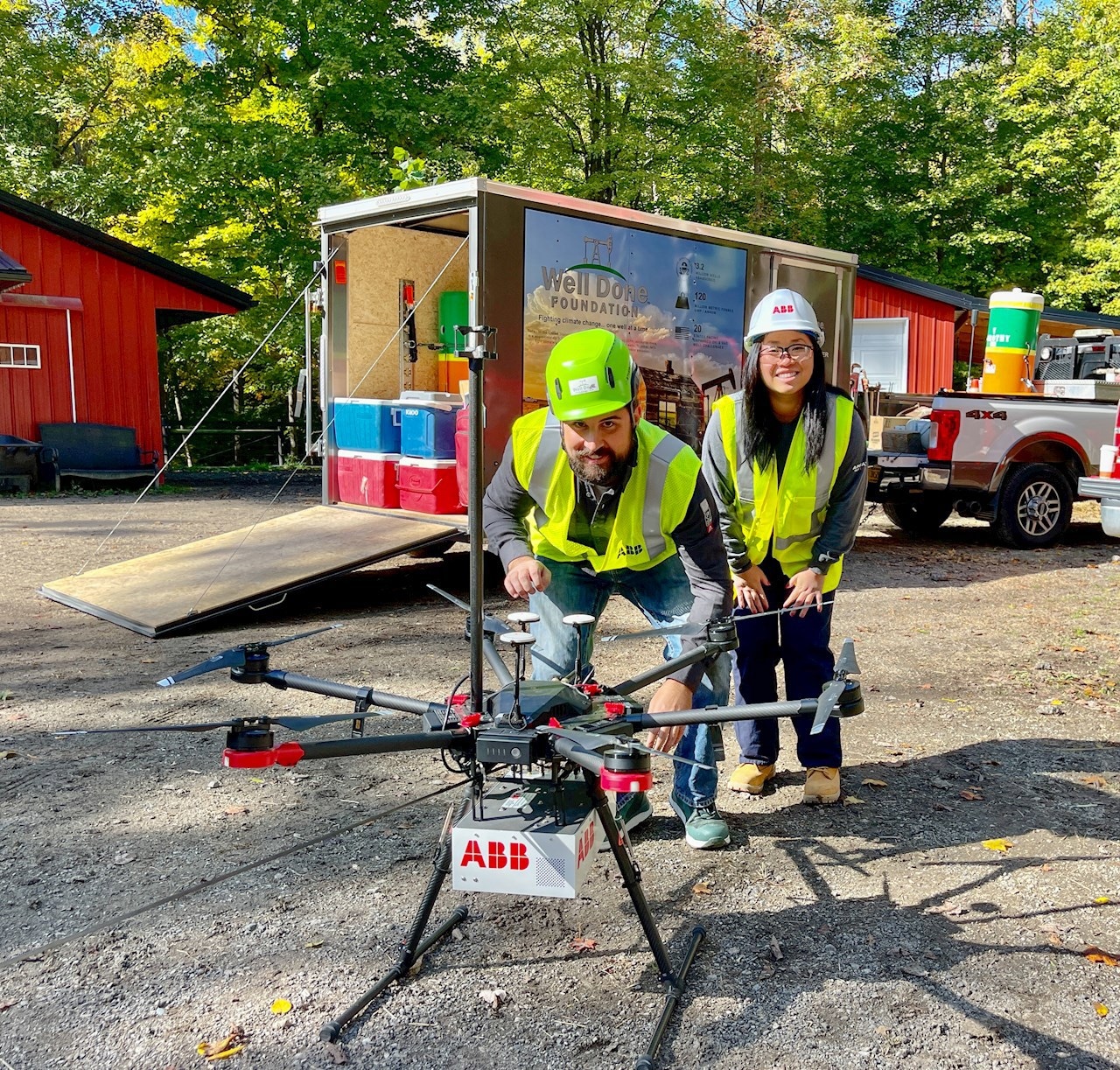- ABB’s proven emissions monitoring technology now extends to tackling the massive environmental problem of millions of leaking orphan oil and gas wells
- ABB’s OA-ICOS™ laser-based technology has a track record of providing trustworthy measurements of greenhouse gases that are recognized by global industry bodies, research centers and environmental protection agencies
- By supporting the work on plugging decommissioned wells in the United States, the technology helps in the fight against climate change
ABB’s emissions monitoring technology which is typically used for gas leak detection by oil and gas companies and natural gas utilities is now employed to identify and monitor orphan wells in the United States.
With the help of ABB technology, organizations such as The Well Done Foundation, the nonprofit organization that works to plug orphan oil and gas wells in the country, can detect leaking wells and, once the wells are capped, continue to monitor the sites to ensure they no longer emit harmful greenhouse gases.
Orphan wells are oil or gas wells that have been deactivated and no longer have legal owners responsible for their care. Due to their age and deteriorated condition, the wells can leak methane and other harmful greenhouse gases through their “plugs”.
The United States Environmental Protection Agency estimates that methane emissions from over 2 million inactive, unplugged wells, of which orphan wells are a subset, range from a CO2 equivalent of 7 to 20 million metric tons per year (approximately the emissions of 2 to 5 million cars). Methane has more than 80 times the warming power of carbon dioxide over the first 20 years after it reaches the atmosphere, according to the Environment Defense Fund.
Many wells are situated on farmland, and could contaminate land, air and water, potentially harming ecosystems, wildlife, livestock, and people.
In some parts of the United States where towns are growing, housing has been built where oil and gas wells once stood. The Environment Defense Fund estimates that 14 million Americans live within a mile of an orphan well.
“It is extremely rewarding to see our technologies employed in the endeavor of fixing such a pressing environmental problem. We remain focused on accelerating the pace of environmental programs that reduce emissions, especially in the oil and gas industry. Our work on this initiative is a great example of how technology can benefit the environment and help countries achieve their sustainability goals,” says Jacques Mulbert, Division President, ABB Measurement & Analytics.


Image Credit: ABB Measurement & Analytics
What can be measured can be improved
Together with channel partner Winn-Marion, ABB worked to create a comprehensive approach that enables the identification, on-site qualification, and monitoring of orphan wells. At the heart of the solution are ABB’s gas leak detection products as well as a suite of flow computers, both used in tens of thousands of industrial plants worldwide to measure and report on emissions.
Initially, ABB’s gas leak detection system is used to find the orphan wells. Depending on their location, the high sensitivity analyzers using OA-ICOS™ technology are transported by vehicle (using ABB Ability™ MobileGuard™), drone (HoverGuard™), or backpack (MicroGuard™) to the site. The system can detect methane emissions down to 1 part per billion (ppb).
Once on-site, the SensyMaster technology measures methane concentration and flow with a measuring range as low as 180kg/h. The flow from the thermal mass is logged and visualized on ABB’s gas flow computers, the control devices known in the industry for their extreme accuracy and reliability. In the post-plugging phase, methane emissions continue to be monitored.
A key advantage of ABB’s emissions monitoring technology is that it is fully audited by the Bureau of Land Management, which manages the Federal government’s onshore oil and gas program in the United States.
Image Credit: ABB Measurement & Analytics
ABB’s Process Automation business automates, electrifies and digitalizes industrial operations that address a wide range of essential needs – from supplying energy, water and materials, to producing goods and transporting them to market. With its ~20,000 employees, leading technology and service expertise, ABB Process Automation helps customers in process, hybrid and maritime industries improve performance and safety of operations, enabling a more sustainable and resource-efficient future. go.abb/processautomation
ABB is a technology leader in electrification and automation, enabling a more sustainable and resource-efficient future. The company’s solutions connect engineering know-how and software to optimize how things are manufactured, moved, powered and operated. Building on more than 130 years of excellence, ABB’s ~105,000 employees are committed to driving innovations that accelerate industrial transformation. www.abb.com